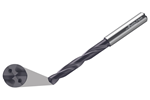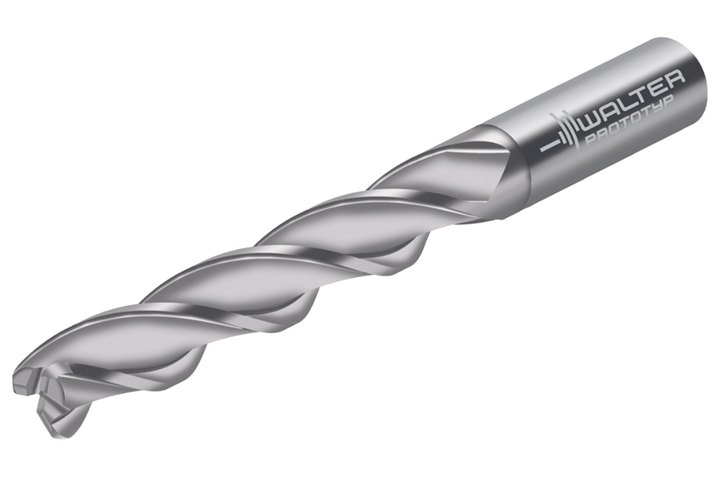Solid Carbide Cutter Mills Aluminum
Roughing and finishing deep pockets and cavities are the primary feature strengths behind this Walter MC166 Advance cutting tool.
Walter USA has unveiled its new MC166 Advance solid carbide milling cutter, which is suitable for all industrial sectors that machine aluminum, copper, brass, bronze and magnesium-based alloys. Aluminum tooling is often used as a low-cost alternative to steel tooling for lower production quantities, making this product applicable for some moldmakers.
The cutting tool was specifically designed for finishing and dynamic roughing of deep pockets and cavities. Dynamic milling involves machining at a low radial depth of cut, a high axial depth of cut and with a large cutting-edge length (Lc), which is three times the cutting edge diameter for the MC166 Advance.
The MC166 Advance solid carbide milling cutter with increased core stability compared to a conventional tool core ensures a consistently reliable machining process even in unattended operations, the company reports. A differential pitch provides optimum operational smoothness and extends tool life.
The cutting tool’s micro-geometry makes it an ideal choice for finishing high wall part features. The tool provides a high level of productivity and reduces cycle times because of its ability to mill at an optimal metal removal rate. The tool also features a 35-degree helix and a DIN 6535 HA (round cylindrical) shank. The uncoated WJ30UU-grade cutter is available in diameters from 12-20 mm.
Related Content
-
Maintaining a Wire EDM Machine
To achieve the ultimate capability and level of productivity from your wire EDM on a consistent, repeatable and reliable basis, regular maintenance is a required task.
-
The Ins and Outs of Hot Runner Temperature Control
A training checklist that explains the why and how of proper hot runner temperature control and system management.
-
Treatment and Disposal of Used Metalworking Fluids
With greater emphasis on fluid longevity and fluid recycling, it is important to remember that water-based metalworking fluids are “consumable” and have a finite life.





.png;maxWidth=300;quality=90)







